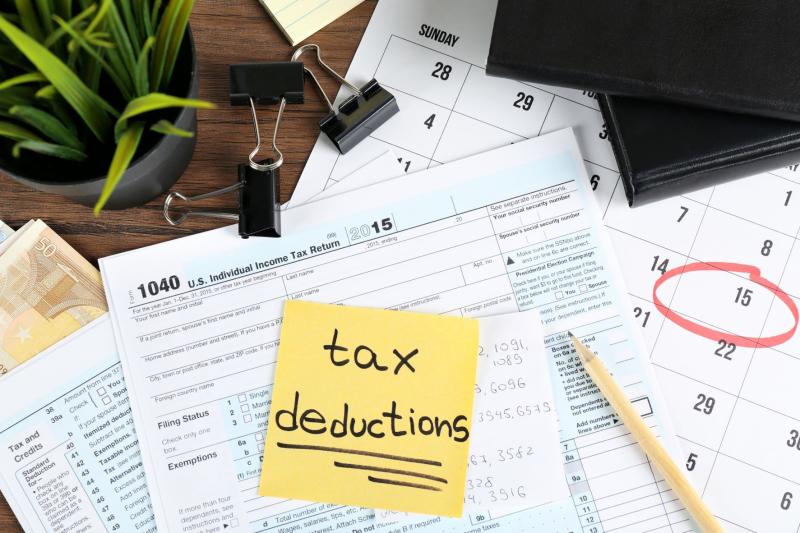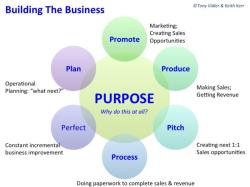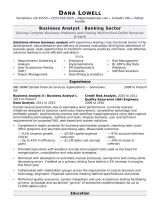What are the best tax deductions for small businesses?
Small businesses can take advantage of various tax deductions to reduce their taxable income and maximize benefits. Here are some of the best tax deductions for small businesses:
1. Business Expenses:
- Deductible business expenses include costs directly related to operating the business. This may include office supplies, rent, utilities, and insurance premiums.
2. Home Office Deduction:
- If you use part of your home exclusively for business, you may qualify for the home office deduction. This can include a percentage of your rent or mortgage interest, property taxes, utilities, and home maintenance costs.
3. Startup Costs:
- Deduct certain costs associated with starting a business, such as legal and accounting fees, advertising, and expenses for market research. Note that there are limits on the amount of startup costs that can be deducted in the first year.
4. Vehicle Expenses:
- Deduct vehicle expenses for business use, either through the actual expense method (deducting the cost of gas, maintenance, and depreciation) or the standard mileage rate.
5. Meals and Entertainment:
- Deduct a percentage of meals and entertainment expenses that are directly related to business activities. Keep detailed records, including receipts and documentation of the business purpose.
6. Travel Expenses:
- Deduct travel expenses for business purposes, including airfare, lodging, meals, and transportation costs. Ensure that the trip is primarily for business and not personal reasons.
7. Health Insurance Premiums:
- Small businesses that provide health insurance for employees can often deduct the cost of premiums. This can include coverage for employees and their families.
8. Retirement Plan Contributions:
- Contributions to retirement plans, such as a Simplified Employee Pension (SEP) or a Solo 401(k), are tax-deductible. This not only helps employees save for retirement but also provides tax benefits to the business.
9. Professional Fees:
- Deduct fees paid to professionals, such as accountants, lawyers, and consultants, for services related to the business.
10. Education and Training:
- Deduct the costs of education and training that enhance the skills and knowledge of employees or business owners.
11. Charitable Contributions:
- Deduct business-related charitable contributions. Keep detailed records of donations, and ensure that the charity is recognized as a qualified organization by the IRS.
12. Section 179 Deduction:
- Take advantage of the Section 179 deduction, which allows businesses to deduct the full cost of qualifying equipment and software in the year it's purchased, rather than depreciating it over time.
13. Interest Expense:
- Deduct interest paid on business loans and credit cards. However, personal interest expenses are generally not deductible.
14. Depreciation:
- Deduct the cost of business assets over time through depreciation. This includes tangible assets like equipment, machinery, and vehicles.
15. Legal and Professional Fees:
- Deduct fees paid to attorneys, accountants, and other professionals for services related to the business.
Important Note:
Always consult with a tax professional or accountant to ensure that you are eligible for specific deductions and to navigate the complexities of tax laws. Tax regulations can change, and individual circumstances may vary, so seeking professional advice is essential for maximizing tax benefits.
Identifying Common Deductible Expenses for Small Businesses
Small businesses can deduct a variety of expenses from their taxable income, potentially reducing their overall tax burden. Understanding and utilizing these deductions can significantly impact a small business's financial well-being.
Common deductible expenses for small businesses include:
Business rent or mortgage interest: Payments made for the business premises, including rent, mortgage interest, property taxes, and insurance.
Business utilities: Costs associated with operating the business premises, such as electricity, water, gas, and internet.
Office supplies: Expenses incurred for essential office materials, including stationery, pens, paper, and printer cartridges.
Salaries and wages: Compensation paid to employees for their services, including regular salary, overtime pay, and bonuses.
Employee benefits: Contributions made to employee benefit plans, such as health insurance, retirement plans, and paid time off.
Professional fees: Payments made to professional service providers, such as accountants, lawyers, and consultants.
Marketing and advertising expenses: Costs associated with promoting the business, such as website maintenance, social media advertising, and print marketing materials.
Business travel expenses: Costs incurred for business-related travel, including airfare, hotel accommodations, meals, and transportation.
Vehicle expenses: Costs associated with operating business vehicles, such as fuel, maintenance, repairs, and insurance.
Utilizing Tax Deductions for Business Startup Costs and Supplies
Small businesses can deduct certain costs incurred during the startup phase of their operations. These deductions can help offset the initial financial investment and encourage entrepreneurship.
Deductible business startup costs include:
Legal and professional fees: Expenses incurred for legal and professional services related to the business formation, such as legal fees for incorporating or forming a partnership.
Organizational costs: Expenses related to establishing the business structure, such as filing fees, business licenses, and permits.
Research and development costs: Expenses incurred for developing new products, processes, or services.
Deductible business supplies:
Inventory: Goods held for sale in the ordinary course of business.
Raw materials: Materials used in the production of goods for sale.
Supplies: Consumable items used in the operation of the business, such as office supplies, cleaning supplies, and safety equipment.
Maximizing Deductions for Business Travel, Meals, and Entertainment
Small businesses can deduct certain expenses related to business travel, meals, and entertainment, provided they meet specific requirements. Strategic planning and documentation can help maximize these deductions.
Deductible business travel expenses:
Transportation costs: Airfare, train fares, bus fares, and rental car expenses incurred for business-related travel.
Lodging expenses: Overnight accommodation costs for business-related travel.
Meal expenses: Half the cost of meals consumed while traveling for business purposes.
Deductible business meal and entertainment expenses:
Business meals: Meals provided to clients, customers, or potential customers for the purpose of business discussion or promotion.
Business entertainment: Entertainment activities, such as attending sporting events or concerts, provided to clients, customers, or potential customers for the purpose of business discussion or promotion.
To maximize deductions for business travel, meals, and entertainment, it is crucial to:
Maintain accurate records: Keep receipts, invoices, and mileage logs to substantiate expenses.
Distinguish between business and personal expenses: Clearly separate business expenses from personal expenses.
Follow IRS guidelines: Adhere to IRS guidelines for deducting business travel, meals, and entertainment expenses.
Consult a tax advisor: Seek guidance from a tax advisor to ensure compliance with tax regulations and maximize deductions.












